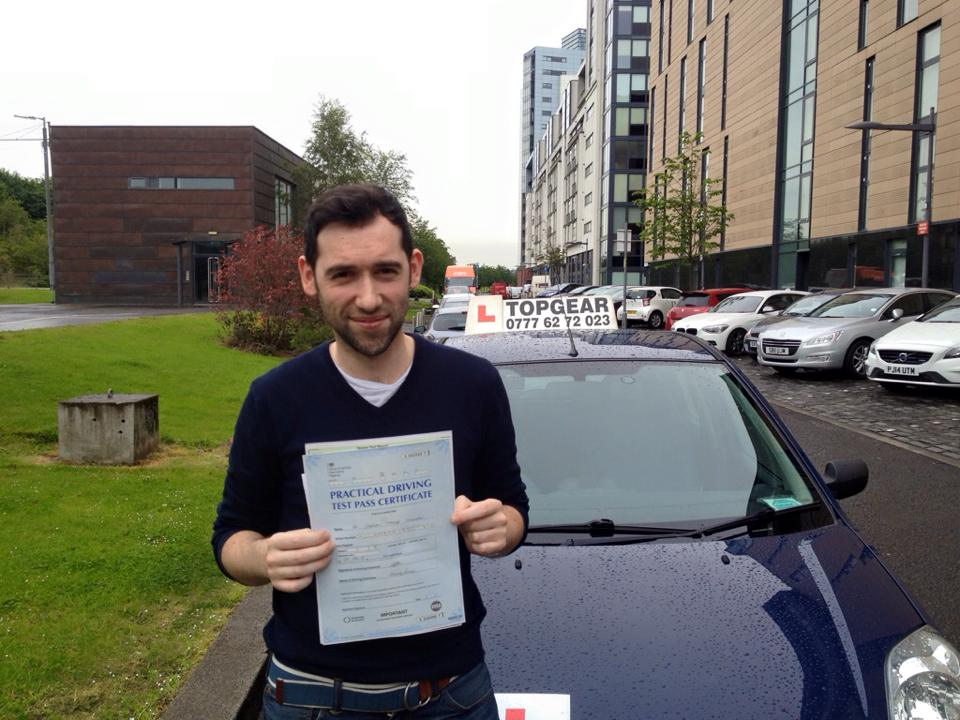Crash Course Driving Glasgow: Fast-Track Your Road Test
Getting your driving licence quickly doesn’t have to mean compromising on the quality of learning to drive. Many Glasgow learners find themselves needing their licence urgently for work, university, or family commitments. The crash course driving Glasgow provides the right approach and can get you test-ready in weeks rather than months.
Crash course driving Glasgow programmes offer structured learning that builds confidence rapidly. These courses pack essential skills into focused sessions. Students often discover they learn better through concentrated practice than spread-out lessons. The key lies in finding instructors who understand how to teach efficiently without cutting corners.
Why Crash Courses Work Better for Some Learners
- Concentrated Learning Benefits: Crash courses eliminate the problem of forgetting skills between weekly lessons. Students retain muscle memory and road awareness more effectively when practising consistently. This approach particularly suits people who learn better through immersion rather than gradual introduction to new concepts.
- Time Efficiency for Busy Schedules: Many adults struggle to fit regular driving lessons around work commitments. Crash courses allow learners to block out specific periods for intensive training. This method often proves more cost-effective than stretching lessons over many months with potential skill deterioration between sessions.
How Fast-Track Learning Builds Confidence
- Rapid Skill Development: Instructors focus on building core competencies quickly through repetitive practice. Students experience noticeable improvement within days rather than weeks. This rapid progress creates positive momentum that helps nervous learners overcome anxiety. The brain adapts faster to driving challenges when exposed to consistent, varied scenarios.
- Real-World Preparation: Crash courses expose learners to diverse driving conditions within a short timeframe. Students practice in different weather conditions, traffic situations, and road types. This comprehensive exposure builds adaptability that serves them well during tests and beyond. Glasgow’s varied road network provides excellent training opportunities.
Essential Skills Covered in Intensive Programmes
Core Driving Fundamentals: Instructors prioritise essential skills that directly impact test success. These include proper mirror usage, speed control, junction navigation, and hazard awareness. Students learn to coordinate multiple actions simultaneously through structured practice sessions.
Key areas covered include:
- Vehicle control and steering precision with immediate feedback.
- Traffic awareness and positioning for Glasgow road conditions.
- Parking techniques including parallel and bay parking methods.
- Emergency procedures and defensive driving strategies.
Test-Specific Preparation: Experienced instructors know exactly what examiners look for during tests. They identify common failure points and address these systematically. Students practice test routes and scenarios until responses become automatic. This targeted approach significantly improves pass rates compared to general driving practice.
Choosing the Right Intensive Course Structure
- Course Duration Options: Most crash courses range from one to four weeks depending on starting ability. Complete beginners typically need longer programmes than those with some driving experience. Instructors assess individual needs during initial sessions to recommend appropriate course lengths. Some learners benefit from semi-intensive options that balance speed with thorough skill development.
- Lesson Frequency and Timing: Daily lessons work best for maximum retention and progress. Two-hour sessions allow enough time to cover substantial ground without causing fatigue. Morning slots often provide better road conditions for learning. Students should consider their energy levels and concentration span when booking session times.
What Makes Glasgow Crash Courses Effective
- Local Road Knowledge: Glasgow presents unique driving challenges that require specific preparation. Experienced local instructors understand traffic patterns, common hazards, and test route characteristics. Students learn to navigate busy city centres, handle tram systems, and manage complex junction layouts. This local expertise proves invaluable for test success.
- Instructor Experience Level: Quality crash courses employ instructors with extensive experience in intensive training methods. These professionals understand how to pace learning appropriately and recognise when students need additional practice. They adapt teaching styles to suit individual learning preferences and can spot potential problems early.
Managing Expectations and Preparation
- Mental Readiness for Intensive Learning: Crash courses demand significant mental focus and can feel overwhelming initially. Students should prepare for concentrated learning periods and potential information overload. Regular breaks and proper rest between sessions help maintain learning effectiveness. Some learners find keeping a driving diary helpful for tracking progress.
- Physical and Practical Considerations: Intensive courses require stamina and dedication from learners. Students should ensure they have adequate time off work and minimal distractions during course periods. Proper preparation includes getting sufficient sleep, eating well, and staying hydrated during long training days.
Conclusion
Crash course driving Glasgow offers an efficient route to test readiness for motivated learners. These programmes deliver focused training that builds confidence through concentrated practice and expert guidance. Students who commit fully to the process often achieve their licensing goals faster than through traditional weekly lessons. Ready to fast-track your driving journey? Contact a qualified instructor today to discuss intensive course options that match your timeline and learning style.

